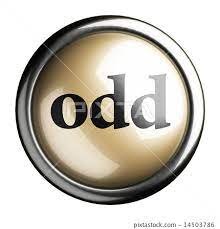Language of the Day: Leap Year
If you were born on February 29th, you will be able to celebrate your actual birthday this year because 2024 is a leap year!
The reason for a leap year is that is takes 365.25 days for the earth to orbit so sun, so approximately every four years we get an extra day on the calendar. February 29th is known as a leap day.
Leap years are an anomaly. (Anomaly: something that is unusual or different and is not standard, normal, or expected)
Another anomaly that affects most Canadians twice a year is Day Light Savings Time which causes our clocks to change by one hour. A lot of people have mixed feelings about DST. While some people enjoy the extra hour of daylight in the mornings, it also gets dark out one hour earlier.
Most of our Smart devices, including our Smart phones and tablets, update the time automatically. However, we still may have to manually change the time on some of the clocks in our homes. This often causes confusion!
Here is a good way to remember whether its time to turn the clocks one hour back or forward: “Fall Back, Spring Forward.”
We gain one hour in the Fall (November) and lose one hour in the Spring (March). In other words, it’s nice to get an extra hour of sleep in November, but it can be tough to lose an hour of sleep in March!
Vocabulary of the Day: the word odd has multiple meanings. Here are 4 definitions and examples:
odd (adj.) - something that is strange or different from what is usual or expected.
“It’s odd that February doesn’t have 30 or 31 days like all the other months.”
odd (adj.) - happening infrequently or irregularly.
“I work a few odd jobs and have a flexible schedule, so Daylight Savings Time doesn’t really affect me.”
odd (adj.) - numbers that end in 1, 3, 5, 7, and 9. (*the opposite meaning is even)
“The month of February has an odd number of days once every four years.”
odds (noun) - the possibility of achieving something that is unlikely.
“The odds of being born on February 29th are the lowest compared to any other day.”




